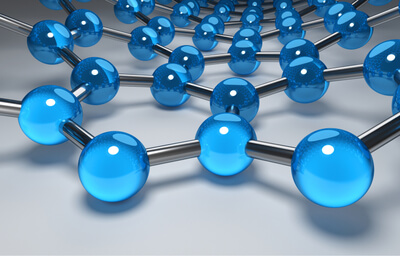Graphene: A Future for Electronic and Electrochemical Applications

“Many years ago, an academic journal from G.H. Raisoni College of Engineering in India that was published in 2015 and written by Ravikumar K. Tiwari and Rakshit Rangari, the paper predicted the future of graphene in years to come that this new wonder material would be a future of growth process overcoming the high-performance electronics when it was made at industrial scale.”
Years later to now, graphene has recently attracted the interest among the researchers and industries in the field of material science and nanotechnology. As reported in many papers that some of unique properties as graphene is scientifically formed up, these new device concepts and nanotechnologies can overcome some of the main limitations of traditional radio frequency electronics in terms of maximum frequency, linearity and power dissipation.
On the other hand, many argued that graphene devices may not be an ideal for all electronics due to the materialization cost, new-born material difficulty and slow-paced adoption/diffusion of this material among users, but it is very certain that graphene may have some advantages over silicon and to replace copper used in wires in many applications. As prediction, many experts already perceived graphene as a successor of silicon in the field. Many groups around the different parts of the world are fabricating graphene transistors, and graphene MOSFETs with record cutoff frequencies in record over 300 GHz, this has been also reported and revolutionized.
In a context of this Blog, KV Electronics highlights the recent research done and reported on an official website of The University of Manchester in UK on graphene for industrial and commercial usage and also the possible use of graphene in future electronics and electrochemical applications as the disruptive material technology including and not limit to the application areas of transport, medicine, electronics, energy, defense, desalination and etc.
- Biomedical - Graphene's unique properties allow for ground-breaking biomedical applications. Targeted drug delivery, improved brain penetration, DIY health-testing kits and “smart” implants.
- Graphene-based composite materials - Graphene is a material with a huge amount of outstanding qualities, strength, flexibility, lightweight and conductivity.
- Electronics - Graphene has the potential to create the next-generation of electronics currently limited to sci-fi. Faster transistors; semiconductors; bendable phones and other electronics.
- Energy - Imagine fully charging a smartphone in seconds or powering an electric car in minutes. That's the power of graphene.
- Graphene membranes - Imagine clean drinking water for millions in developing countries. The development of graphene-based membranes brings that possibility closer for humanity wellbeing.
- Sensors - Graphene detects the best. Ultra-sensitive sensors made from graphene could detect minute dangerous particles helping to protect potentially dangerous environments.
These are the start of world’s new materialization to revolutionize, and some will be disrupted in the range of industries where and when the research and development of GRAPHENE is making an impact that is substantial and demanding a drastic change. Yet to say it is now successful, this is only the start of graphene’s first steps. KV Electronics believes that the potential of graphene to the world is limited only by our imagination.
Graphene – A Brief Overview:
Graphene, a miracle material, it was discovered by Prof. Dr. Andre Geim and Prof. Dr. Kostya Novoselov of the University of Manchester, United Kingdom (the two founders were awarded the 2010 Nobel prize in Physics).
Graphene is a single layer (monolayer) of carbon atoms, tightly bound in a hexagonal honeycomb lattice. This makes carbon the chemical basis for all known life on earth, making graphene potentially an eco-friendly, sustainable solution for an almost limitless number of applications. Graphene is also the thinnest material known to man at one atom thick, and it is also incredibly strong (about 100 times harder than diamond and 200 times stronger than steel). In Electrical and Electronics, graphene is an excellent conductor of heat and electricity and has interesting light absorption abilities. Graphene has emerged as one of the most promising nanomaterials because of its unique combination of exceptional properties, graphene is not only the thinnest, but also one of the strongest materials that conducts heat better than all other materials and is called an excellent conductor of electricity and the most invisibility transparency.